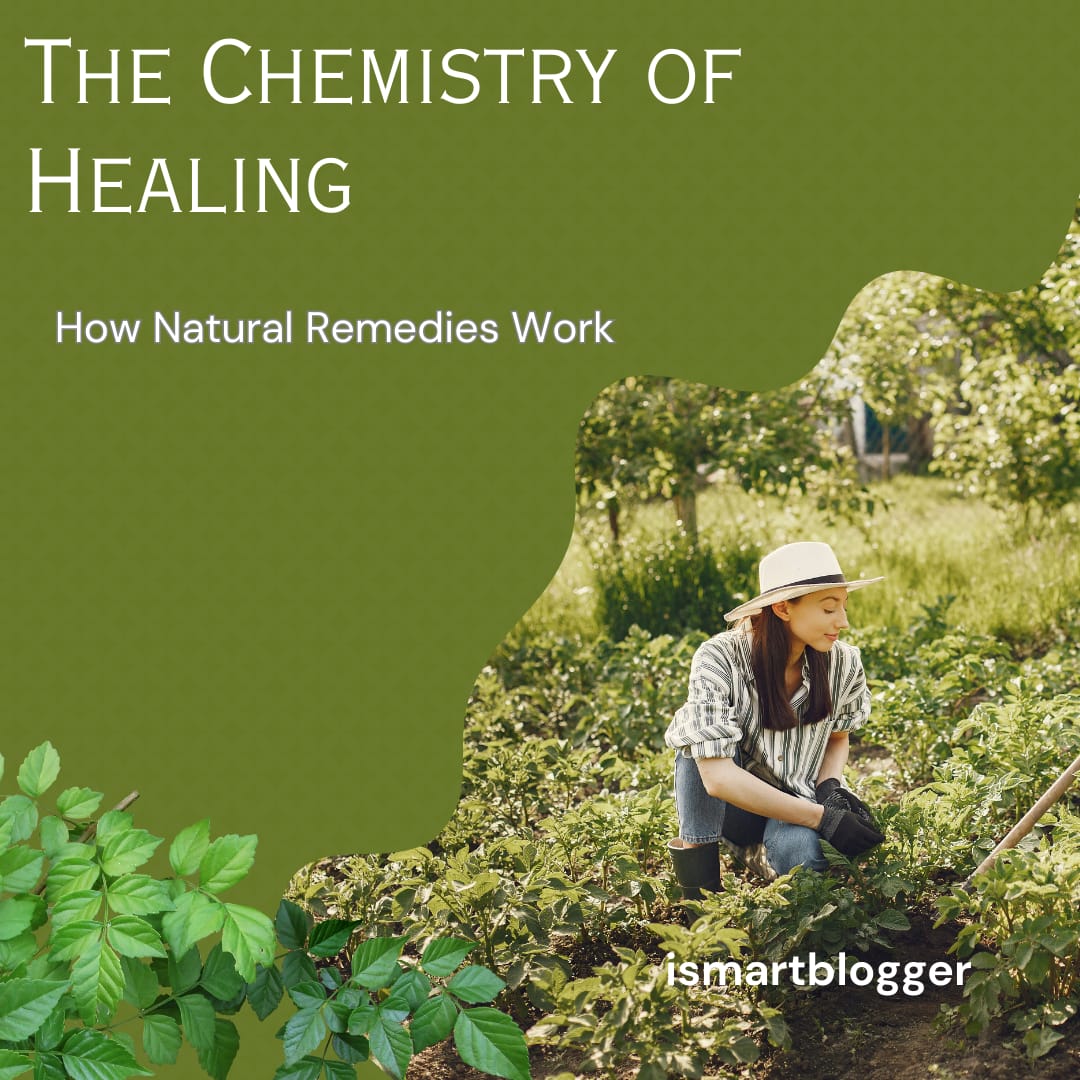Natural remedies, also known as alternative or complementary medicine, have been a popular choice for individuals seeking alternative forms of healing for thousands of years. From traditional and indigenous medicine to modern research, natural remedies have evolved and continue to be a topic of interest for many. In this blog, we will dive into the science behind natural remedies and explore the evidence that supports their effectiveness.

The History of Natural Remedies
Traditional and indigenous medicine have utilized natural remedies for centuries. Herbs, plants, and other natural substances have been used to treat a variety of health conditions and remedies have been passed down from generation to generation. However, it wasn’t until the 20th century that modern research began to explore the potential benefits and mechanisms of action of natural remedies.
How Natural Remedies Work
The science behind natural remedies involves understanding the mechanisms of action and how they interact with the body. Natural remedies are made up of various phytochemicals and biochemicals that interact with the body in unique ways. These interactions can lead to various therapeutic effects, such as reducing inflammation or promoting relaxation.
Evidence-Based Research on Natural Remedies
There has been a growing interest in the scientific community to investigate the potential benefits of natural remedies. Clinical trials and studies have been conducted to explore the efficacy of natural remedies for various health conditions. While the research on natural remedies is limited, it provides evidence for their potential as a complementary form of therapy. However, there are also limitations and criticisms of the research, highlighting the need for further investigation.
Popular Natural Remedies and Their Science
Herbs and essential oils have been used for centuries as natural remedies and continue to be popular today.
Homeopathic remedies, based on the principles of dilution and potentization, have also gained popularity in recent years.
Nutrition and diet also play a crucial role in natural remedies, as certain foods and nutrients can have therapeutic effects on the body.
Here are some popular natural remedies and the science behind them:
- Echinacea: This herb is commonly used to treat colds and flu. Studies suggest that echinacea may help to boost the immune system, reduce the severity and duration of cold and flu symptoms, and prevent infections.
- Ginger: Ginger is known for its anti-inflammatory properties and is often used to treat nausea and vomiting. Studies suggest that ginger may also help to reduce muscle pain and soreness, lower blood sugar levels, and improve brain function.
- Turmeric: Turmeric is a spice commonly used in Indian and Middle Eastern cooking, and is known for its anti-inflammatory and antioxidant properties. Studies suggest that turmeric may help to reduce inflammation and pain, lower the risk of heart disease, and improve brain function.
- Peppermint: Peppermint is commonly used to treat digestive issues such as bloating, gas, and stomach cramps. Studies suggest that peppermint may help to relax the muscles in the digestive tract, reduce inflammation, and relieve pain.
- Lavender: Lavender is often used to promote relaxation and reduce anxiety. Studies suggest that lavender may help to lower heart rate and blood pressure, reduce anxiety and depression, and improve sleep quality.
It’s important to note that while these natural remedies have shown promise in some studies, more research is needed to fully understand their effects and ensure their safety. It’s also important to speak with a healthcare professional before using any natural remedies, especially if you have a medical condition or are taking medication.
These are just a few of the many natural remedies that are backed by science and have been proven to have therapeutic effects on the body. In The Encyclopedia of Natural Remedies, we delve deeper into the science behind these remedies and provide step-by-step instructions on how to use them effectively to improve your health and wellbeing. Join us on this journey to discover the power of natural remedies and learn how to incorporate them into your daily life.
Safety and Risks of Natural Remedies
While natural remedies are generally considered safe, they can also cause adverse reactions and interact with conventional medications. It is important to consult with a healthcare professional before using natural remedies, especially if you have a pre-existing medical condition or are taking any medications.
Conclusion
In conclusion, the science behind natural remedies continues to evolve as modern research explores their potential benefits and mechanisms of action. While the evidence for their effectiveness is limited, natural remedies have been used for thousands of years and remain a popular choice for individuals seeking alternative forms of healing. It is important to approach natural remedies with caution and seek the advice of a healthcare professional before use.
“Unlock the power of nature and discover the science behind natural remedies with The Encyclopedia of Natural Remedies. Get your copy today and start exploring the world of alternative healing and wellness.“ https://bit.ly/3YqImHS

